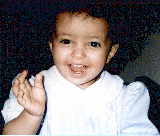Arab Family structure
Arabian Business and Cultural Guide is a 200+ pages guide for visitors, exporters, and international traders to understand the culture, business culture, and how to do business with Saudi Arabia, Kuwait, United Arab Emirates, Qatar, Bahrain and other Arab countries. Author: Mohammad Al-Sabt.
In an Arabian
family, gender and age plays a big role in specifying responsibilities.
The father is usually the head of the family and the provider for its
needs, while the mother plays a major role in raising children and taking
care of the house. This structure is not always the norm; in recent years,
both the father and the mother provide for family needs, while household
chores are taken care of by maids and servants. In the past, most major
family decisions were made by the father, but recently some of these decisions
are made jointly by both the father and the mother. Sons
and daughters are taught to follow the inherited traditions and are given
responsibilities that correspond with their age and gender. Sons are usually
taught to be protectors of their sisters and to help the father with his
duties inside and outside the house, while daughters are taught to be
the source of love and emotional support in the family, as well as helping
their mother to take care of household chores.
Winds of change do not spare any culture; the changes that entered the structure of some Arabian houses is not due to economical needs, but education for both men and women that is mandated by law in the Arabian countries. Education from kindergarten up to university degrees is free to nationals and sometimes residents of these Arabian countries.
Although culture, traditions, and Islam strongly stress the importance of women's roles in taking care of the house and raising children, it is a mistake to think that Arabian women are confined to this role. Before Islam there were many successful Arabian businesswomen and they still exist throughout the Arabian region, but because of cultural reasons, they conduct business in an inconspicuous way. A daughter lives at her family house as long as she is not married; once she is married she moves to her husband's home. Sons might move to their own houses when they get married, but at least one son will still live at the family house even if he is married in order to take care of the parents. When a woman gets married there are no changes made to any part of her name.
Winds of change do not spare any culture; the changes that entered the structure of some Arabian houses is not due to economical needs, but education for both men and women that is mandated by law in the Arabian countries. Education from kindergarten up to university degrees is free to nationals and sometimes residents of these Arabian countries.
Although culture, traditions, and Islam strongly stress the importance of women's roles in taking care of the house and raising children, it is a mistake to think that Arabian women are confined to this role. Before Islam there were many successful Arabian businesswomen and they still exist throughout the Arabian region, but because of cultural reasons, they conduct business in an inconspicuous way. A daughter lives at her family house as long as she is not married; once she is married she moves to her husband's home. Sons might move to their own houses when they get married, but at least one son will still live at the family house even if he is married in order to take care of the parents. When a woman gets married there are no changes made to any part of her name.
 Arabs teach their children the cultural values and customs
since early age. For every age there is an adequate responsibility of
social behavior and duties that expands in range as they grow older. Children
bring joy and smiles to everyone. Family members, relatives, friends,
and neighbors share in taking care of each others children. Although the
responsibility of raising a child naturally lies on the parents, others
do join in helping out. A known Arabian proverb, "He who grows on something,
will grow old with it" means the behavior that children are being taught
will be the behavior they will have as they grow older.
Arabs teach their children the cultural values and customs
since early age. For every age there is an adequate responsibility of
social behavior and duties that expands in range as they grow older. Children
bring joy and smiles to everyone. Family members, relatives, friends,
and neighbors share in taking care of each others children. Although the
responsibility of raising a child naturally lies on the parents, others
do join in helping out. A known Arabian proverb, "He who grows on something,
will grow old with it" means the behavior that children are being taught
will be the behavior they will have as they grow older.
Next: Social duties
copyright© TradersCity.com. All Rights Reserved.
